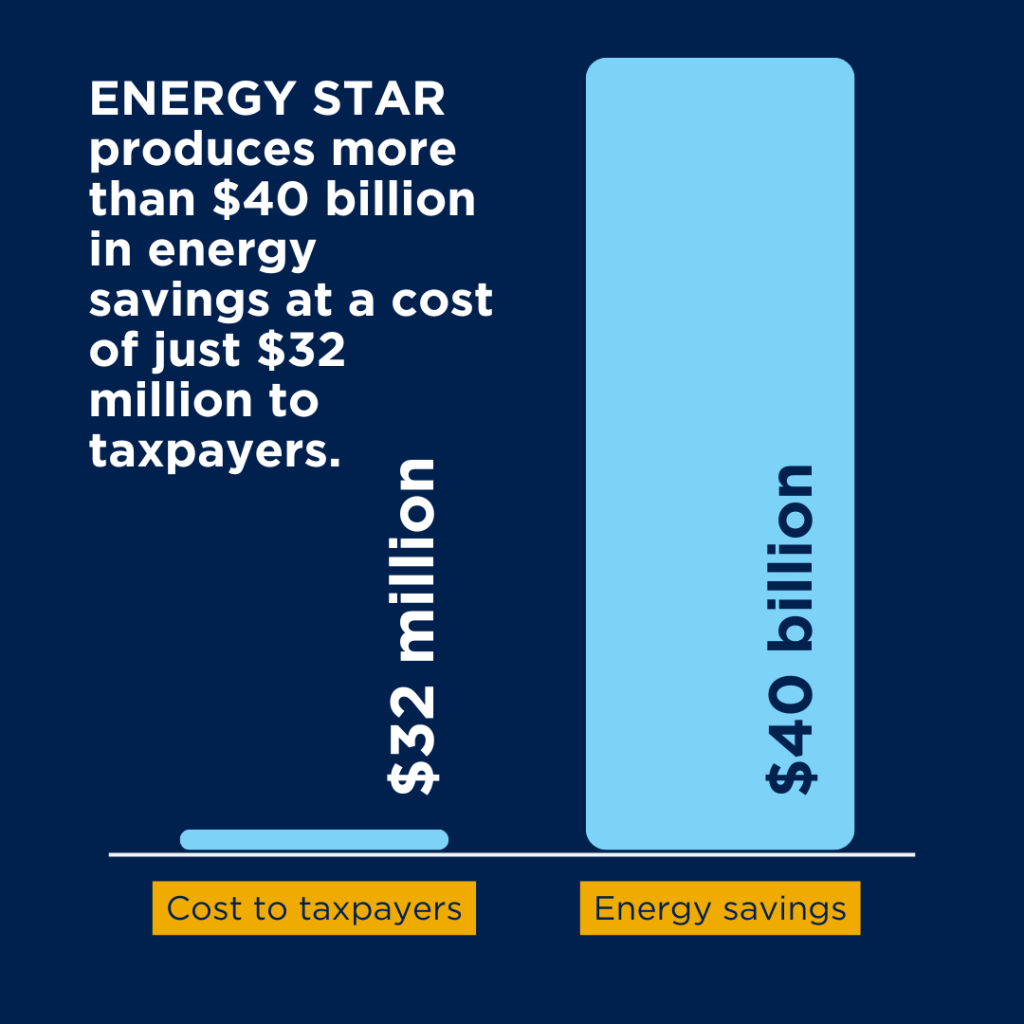“Only the federal government has the data, talent, lab research, and other expertise necessary to run all facets of ENERGY STAR efficiently and impartially.”
-Jeffrey D. DeBoer, President and CEO of The Real Estate Roundtable
IMT is concerned about recent news that the federal government may end ENERGY STAR®. ENERGY STAR is administered by the U.S. Environmental Protection Agency. President Bush created ENERGY STAR in 1992, and it enjoys broad bipartisan support. Thousands of organizations—including nearly 40% of the Fortune 500®—partner with ENERGY STAR. Together, they deliver cost-saving energy efficiency solutions that reduce energy waste, lessen the need for new power plants, improve air quality, and protect public health.

Value of ENERGY STAR
Each year, ENERGY STAR produces about $40 billion in energy savings at a cost of about $32 million to taxpayers. While most news is focused on ENERGY STAR’s role in appliance efficiency, the program also plays a major role in improving our nation’s buildings.
The ENERGY STAR Commercial and Industrial program, which includes Portfolio Manager®, contributes more than one-third of the savings.
ENERGY STAR Portfolio Manager is used to track the energy use of nearly 25% of all commercial building space in the U.S., and there is widespread support for its use among real estate companies, associations, manufacturers, investors, lenders, utilities, and non-governmental entities.
Industry letters of support

Over 1200 companies and organizations have signed letters advocating for EPA to continue to operate the ENERGY STAR program.
- Letter to EPA Administrator Zeldin from more than 1200 businesses and organizations
- Letter to EPA Administrator Zeldin from associations representing most large appliance manufacturers
- Letter to EPA Administrator Zeldin from associations representing over $20 trillion in real estate and over one million realtors
- Letter to DOE Secretary Wright from associations representing over $20 trillion in real estate
- Public Statement from the Real Estate Roundtable
- Letter to Congress from associations representing over $20 trillion in real estate and homebuilding: letter to Congress
- Letter to Congress from a broad coalition of organizations representing the manufacturing, consumer products, retail, and real estate sectors of the U.S. economy.
More than 100,000 building owners and operators rely on ENERGY STAR programs to track their energy use, identify areas for improvement, and assess business performance. A sudden change in the program management will damage the entire real estate sector, at a time when there is already significant uncertainty. This program has been successful, and the federal government is best positioned to ensure continuity and fairness.
US Green Building Council has a campaign to contact members of Congress, and it is helpful for business owners and real estate professionals to reach out. Please contact Cliff Majersik if you would like to learn more.